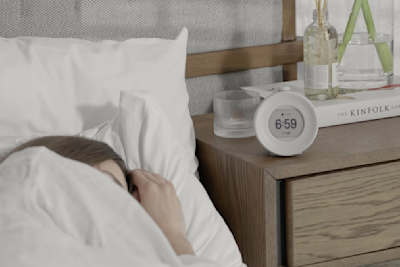
Be Here Now: What it means to live in the present moment
In the here & now
Living in the present moment is a concept that has been discussed and debated for centuries, with many different interpretations and perspectives.
At Mudita, we often write about the many benefits of mindfulness and being fully present in our everyday lives.
However, what does it actually mean to be in the here and now?
On the surface, being in the present moment often involves being fully focused on the task at hand, whether it be a conversation, a physical activity, or simply being still and observing your surroundings, but at its core, living in the present moment refers to being fully aware and engaged in the current situation, rather than dwelling in the past or worrying about the future. This concept is closely tied to mindfulness, which is the practice of being fully present in the moment, without judgment or distraction.
Let’s explore a variety of tools and techniques which you can use to help you be more present in your everyday life, so you can make the most of each moment and enjoy life to the fullest.
Mindfulness
Mindfulness is a key aspect of living in the present moment, as it allows individuals to fully engage with their surroundings and experiences, rather than being caught up in their own thoughts and worries. This can be achieved through a variety of practices, such as meditation, yoga, and nature walks. Each of these practices has been shown to reduce stress and improve overall well-being.
Meditation
Meditation is one of the most popular and well-established practices for achieving mindfulness. This practice involves sitting in a quiet and comfortable place, focusing on the breath, and allowing any thoughts that arise to pass without judgment or attachment. This can help to quiet the mind and promote a sense of peace and calm. Studies have shown that meditation can help to reduce stress, improve focus and concentration, and even lead to changes in the brain that promote well-being.
Yoga
Yoga is another practice that has been shown to be beneficial for mindfulness and living in the present moment. Yoga is a practice that combines physical postures, breathing exercises, and meditation. It has been shown to be beneficial for reducing stress, improving physical health, and promoting mental well-being.
Nature Therapy
Nature walks are another way to cultivate mindfulness and live in the present moment. Being in nature can help to reduce stress and promote a sense of connection to the world around us. It can also help to improve focus and concentration, and even lead to changes in the brain that promote well-being. A practice of walking meditation or grounding/earthing combines the concept of mindfulness with nature, making it a very effective way to cultivate awareness and experience the power of the present moment.
Shift in perspective
Living in the present moment can also be beneficial for stress relief and clarity. When we are caught up in our thoughts and worries about the past or future, it can be difficult to see things clearly and make effective decisions. By being fully present in the moment, we are able to see things as they are and respond more effectively to the challenges we face.
The opposite of living in the present moment is often referred to as "living in the past" or "living in the future." This can refer to dwelling on past events or regrets, or constantly worrying about what may happen in the future.
Additionally, it may also refer to mind-wandering, daydreaming and being lost in thoughts about past or future events, rather than being fully present and engaged in the current moment.
Being stuck in the past can lead to feelings of depression, anxiety, and sadness. Similarly, worrying about the future can lead to feelings of stress, worry, and uncertainty. These states of mind can prevent people from enjoying their present and can also affect their future.
Furthermore, dwelling on the past or future around bedtime, can lead to poor sleep. Research has shown that ruminations can sabotage sleep quality, as well as lead to insomnia.
In contrast, living in the present moment allows individuals to fully engage with their surroundings and experiences, rather than being caught up in their own thoughts and worries. It allows them to see things as they are and respond more effectively to the challenges they face. In short, living in the present moment means being fully present and engaged in the current moment, while the opposite of it is being stuck in the past or future.
Final thoughts
Although being present in the moment is a valuable skill that can bring peace and happiness to our daily lives, it can often be challenging to stay focused and undistracted in our fast-paced world.
The idea of living in the present moment has been a topic of conversation for centuries and involves being fully attentive and invested in the present, rather than ruminating on the past or fret about the future. Practicing mindfulness through meditation, yoga, nature walks and other methods has been proven to enhance awareness, reduce stress and improve overall wellness.
This focus on the here and now brings us to a clearer state of mind, easing stress and facilitating better decision making. By fully engaging with our surroundings and experiences, rather than being consumed by thoughts and worries, we can attain a sense of peace and well-being.
If you’d like to read more about topics connected to this subject, please check out some of our other articles:
To learn more about Mudita, take a look at our website and our other posts.
Related stories

How To Build a More Thoughtful Relationship with Tech in 2026
Build a more thoughtful relationship with technology in 2026. Learn how mindful tech use & mindful devices can help you reclaim focus, rest, and balance.

5 Reasons to Switch to an E Ink Alarm Clock for Better Sleep
Switch to an E Ink alarm clock like Mudita Harmony to sleep better. Reduce blue light, EMFs, and nighttime stress for healthier, more restful sleep.

March is Sleep Awareness Month: Time to Reset & Rest
March is Sleep Awareness Month! Learn how sleep impacts health, focus & well-being, and get expert tips to reset your routine for better, healthier rest.
If you'd like to receive the best stories from our blog, keep up to date with our progress and get notified about our product releases and special discounts.